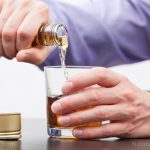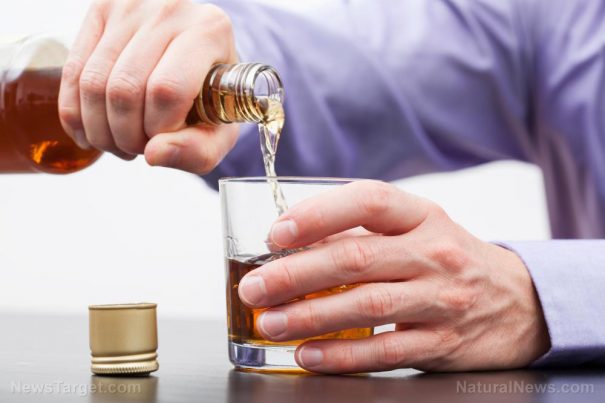
Alcohol ads that feature pro-drinking comments confirmed to increase a person’s desire to drink: Study
Monday, April 01, 2019 by Zoey Sky
http://www.naturalnewsresearch.com/2019-04-01-alcohol-ads-with-pro-drinking-comments-increase-desire-to-drink.html

Social media sites are full of advertisements for various products and services. According to a study, these advertisements can affect your alcohol consumption.
The study, which was published in the Journal of Studies on Alcohol and Drugs, was conducted by Dr. Jonathan Noel and Dr. Thomas Babor from the University of Connecticut School of Medicine (UConn SoM).
Alcohol advertisements on social media
Noel, the study’s lead author from UConn SoM, explains that social media contains more information besides posts or messages from the people you interact with. Facebook often exposes you to how other users respond to a post, and these responses may influence your desire to drink.
The results of the study imply that comments left by other social media users may either reinforce or negate the message from a post.
Social media sites feature hundreds of corporate-sponsored alcohol ads with millions of Likes and Shares. Along with YouTube, where alcohol ads have millions of views, alcohol companies have effectively expanded platforms to reach adolescent consumers.
For the study, the researchers observed 120 young adults – aged 21 to 24 years – living in the U. S. They were asked to view four online ads.
These ads were actual beer advertisements posted on Facebook. The scientists then selected certain comments that would appear with the ads: either pro-drinking comments that accompanied the ad online or anti-drinking comments.
The ads also varied. Some of them had a high number of Likes, Shares, or Comments (thousands), or a low number (from dozens to hundreds). After the volunteers saw each ad, they were asked if they thought the ad would increase their desire to drink, and whether they would Like or Share the ad.
Findings showed that the volunteers had the lowest desire to drink after they were exposed to ads with anti-drinking comments and a high “user engagement” (such as Likes/Shares/Comments). On the other hand, the desire to drink was 3.5 times higher after volunteers were shown an ad with pro-drinking comments and high user engagement.
The results also revealed that the ads with pro-drinking comments made the volunteers more than twice as likely to say that they would Like or Share the ad on social media.
Noel finds the results fascinating, especially since it showed that aside from influencing the desire to drink, comments on alcohol ads can also increase the reach and virality of the ad. However, the number of Likes, Shares, and Comments on ads didn’t make people want to drink more. Rather, the volunteers were influenced by the type of comments, which were either pro- or anti-drinking.
The researchers warn that alcohol ads and the corresponding comments – particularly pro-drinking comments – may significantly affect people with alcohol problems. The ads and the positive comments about drinking may be viewed as alcohol cues. Furthermore, an increased desire to drink after exposure to alcohol cues may result in relapse after treatment for alcoholism. (Related: Cutting back on alcohol can do wonders for your health.)
To date, alcohol advertisers follow a system of self-regulation with certain restrictions, such as limiting depictions of excessive use and appealing to adolescents.
The researchers warn that the industry must make changes to improve the voluntary self-regulatory system that governs its advertising by limiting or banning comments on social media advertising.
Tips to limit your alcohol intake
Here are some recommendations for controlling alcohol intake:
- Set a realistic goal for your alcohol consumption and do your best to follow it.
- Take note of how much you drink. If you believe you have a problem, having a record of how much alcohol you consume can start your journey to recovery.
- If you’re at a social event, start with a non-alcoholic drink. If you’re thirsty, you’re more prone to drinking more alcohol.
- Never drink on an empty stomach. Like thirst, hunger can also make you drink more alcohol than you need.
- Always avoid heavy drinking situations.
Visit Addiction.news for more articles about the dangers of excessive alcohol consumption.
Sources include:
Tagged Under: Tags: addiction, Advertising, Alcohol, alcoholism, badhealth, beer, brainwash, drinking habits, Facebook, heavy drinking, mind body science, research, Social media, social media ads, wine





